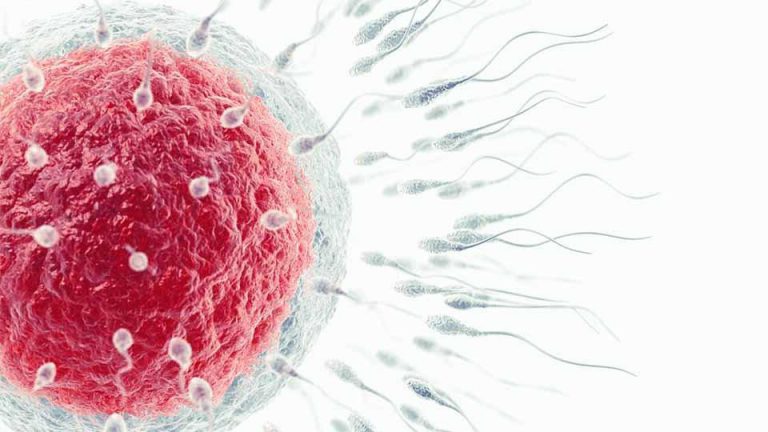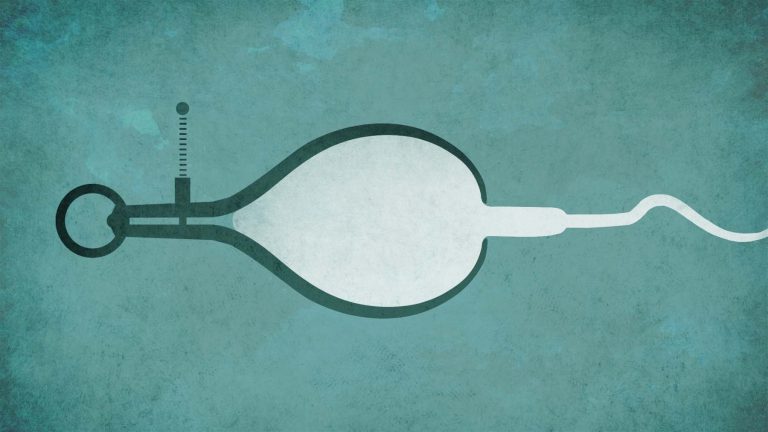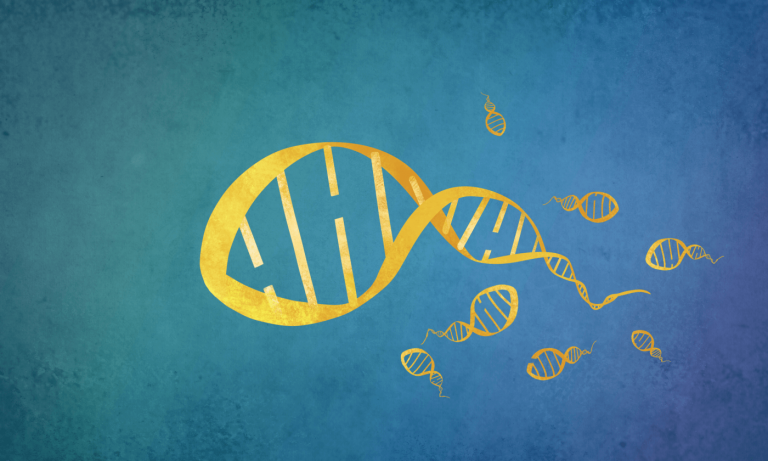Follicle-Stimulating Hormone (FSH) is a crucial player in the intricate systems of human reproduction, influencing fertility in both men and women. In this comprehensive guide, we will delve into the nuances of FSH levels in men, shedding light on its roles, significance, and the impact it holds on fertility potential.
Follicle Stimulating Hormone (FSH): An Overview
Follicle-Stimulating Hormone (FSH), plays a pivotal role in both the female and male reproductive systems. Produced by the pituitary gland in the brain, FSH stimulates testicular growth. It also helps produce a protein that aids in creating normal sperm cells. FSH levels significantly contribute to the successful creation of healthy sperm, promoting optimal reproductive outcomes.
The regulation of FSH levels is intricately governed by the hypothalamic-pituitary-gonadal axis, a complex system of hormones. The process begins with the hypothalamus releasing gonadotropin-releasing hormone (GnRH). This stimulates the pituitary gland to release FSH and luteinizing hormone (LH). FSH and LH, known as gonadotropins, travel through the bloodstream, binding to receptors in the testes, thereby controlling their functions. The cycle repeats as hormones released by the testes influence GnRH production. Disruptions in this system can create abnormal hormone levels, impeding sexual development in children and compromising testicular function in adults.
The Crucial Role of FSH in Male Fertility
One key function of FSH is to promote the growth and differentiation of Sertoli cells. These cells are essential for facilitating spermatogenesis, the process through which sperm cells develop and mature. Additionally, FSH influences the expression of genes involved in the organization of cell junctions. FSH also contributes to the transport of nutrients and regulatory substances from Sertoli cells to germ cells (sperm precursors). In humans, mutations affecting FSH production or its receptor can result in various fertility issues. This can range from complete absence of sperm (azoospermia) to mild reductions in sperm production.
Measuring FSH in Men
FSH levels can be detected using a simple blood test. Normal FSH levels in adult males are typically between 1.5 to 12.4 mIU/mL. However, what counts as a normal value may vary from lab to lab, as some labs have different testing standards.
When coupled with other fertility markers, measuring FSH levels provide valuable insights and can aid in the identification of potential issues. FSH levels can vary at different life stages, and maintaining a balance is key for optimal reproductive function. Proper hormonal equilibrium ensures the seamless orchestration of spermatogenesis.
Low and High FSH Levels
A high FSH level in a male may mean the testicles are not functioning optimally. High FSH levels may be caused by damage to the testicles (radiation, trauma, or alcohol abuse), underlying medical conditions, genetic conditions, advanced age, hormonal disorders, certain medications (pain medications or steroids), diseases such as HIV/AIDS or Type 2 diabetes, or (in rare cases) tumors of the pituitary gland.
Low FSH levels in men are less common. Low FSH levels in males may mean the pituitary gland is not functioning optimally. This could include excess androgens, damaged pituitary cells, genetic abnormalities, elevated prolactin, and other conditions. Environmental factors and exposure to certain substances may also cause low FSH, underscoring the need for a holistic approach to reproductive health.
Symptoms of High or Low FSH Levels in Men
There can be some overlap in symptoms between high and low FSH levels. However, there are also distinct differences based on the underlying hormonal imbalances they represent.
Symptoms of high FSH levels in adult males often include sexual dysfunction, infertility, testicular atrophy, gynecomastia, decreased muscle mass and strength, fatigue, mood changes, hot flashes, and changes in body composition. These symptoms typically arise due to disruptions in the normal hormonal regulation of the reproductive system. They can lead to impaired spermatogenesis and altered androgen-estrogen balance.
On the other hand, symptoms of low FSH levels in adult males may also involve sexual dysfunction, infertility, gynecomastia, testicular atrophy, decreased muscle mass and strength, fatigue, mood changes, hot flashes, and changes in body composition. However, the underlying mechanism differs, as low FSH levels may indicate dysfunction within the hypothalamic-pituitary-gonadal (HPG) axis. This can lead to inadequate stimulation of spermatogenesis and testosterone production.
The specific hormonal imbalances and their effects on reproductive function and health distinguish the clinical presentations of abnormal FSH levels. The severity of symptoms can vary among individuals, depending on lifestyle factors and the presence of underlying medical conditions.
Treatment options for addressing high or low FSH levels in men can also depend on the underlying cause and the specific hormonal imbalance involved. Therefore, proper evaluation and diagnosis by a healthcare provider are essential for identifying the underlying cause of hormonal imbalances and guiding appropriate management.
Treatment Options for High FSH Levels
- Lifestyle Modifications: Adopting healthy lifestyle habits, such as maintaining a balanced diet, regular exercise, managing stress, and avoiding excessive alcohol consumption or smoking, may help optimize hormonal balance and support overall health.
- Hormone Replacement Therapy (HRT): In some cases, hormone replacement therapy may be prescribed to restore hormonal balance. This may involve administering testosterone replacement therapy (TRT) to supplement testosterone levels and potentially lower FSH levels.
- Address Underlying Conditions: Treatment may involve addressing any underlying conditions contributing to high FSH levels, such as primary testicular failure, genetic disorders, or pituitary tumors. This may include surgical intervention, radiation therapy, or medication to manage the underlying condition.
- Assisted Reproductive Technologies (ART): In cases where infertility is a concern, assisted reproductive technologies such as in vitro fertilization (IVF) or intracytoplasmic sperm injection (ICSI) may be utilized to overcome fertility challenges associated with high FSH levels.
Treatment Options for Low FSH Levels
- Lifestyle Modifications: Similar to addressing high FSH levels, adopting healthy lifestyle habits can support hormonal balance and overall health. This may include maintaining a balanced diet, regular exercise, stress management, and avoiding harmful habits such as smoking or excessive alcohol consumption.
- Hormone Replacement Therapy (HRT): Treatment may involve hormone replacement therapy to restore hormonal balance. This may include administering medications such as human chorionic gonadotropin (hCG) or gonadotropin-releasing hormone (GnRH) analogs to stimulate FSH production.
- Management of Underlying Conditions: Addressing any underlying conditions contributing to low FSH levels, such as hypothalamic or pituitary dysfunction, may be necessary. This may involve medication, surgery, or other interventions to manage the underlying cause.
- Fertility Treatments: In cases where infertility is a concern, fertility treatments such as gonadotropin therapy may be prescribed to stimulate sperm production and improve fertility outcomes.
It’s important for individuals experiencing hormonal imbalances to undergo proper evaluation and diagnosis by a healthcare provider to determine the most appropriate treatment approach based on their specific needs and underlying health conditions. Treatment plans should be tailored to address individual factors and may involve a combination of medical interventions, lifestyle modifications, and fertility treatments to achieve optimal outcomes.
It is evident that understanding and prioritizing reproductive health is a proactive step towards achieving and maintaining fertility. By decoding the complexities of FSH, individuals can make informed decisions, seek professional guidance when needed, and nurture the foundation of future generations.







